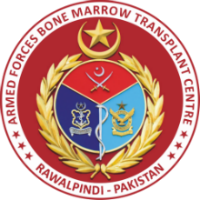Your Hospital Visit
- Booking your Appointment
- Travelling to AFBMTC
- Coming to AFBMTC for an outpatient appointment
- Coming to AFBMTC for blood and blood products transfusion at daycare
- Coming to AFBMTC for a Chemotherapy Session
- Coming to AFBMTC for inpatient admission
-
Visitor and Attendant Policy
- Hospital facilities
-
Take a virtual tour of the hospital
Booking your appointment
You can either pre book appointment or get an onsite appointment if a slot is available.
Call 051-9270076 Ext.257 between 0800-1500 hrs to get appointmentYou can also get an appointment Online
Get Appointment
For better patient care appointment is required for all patients

Travelling to AFBMTC
AFBMTC-NIBMT is located inside CMH Medical Complex, Rawalpindi, Pakistan.
AFBMTC Parking
Parking is Available across the road
After your Arrival
Once you arrive at AFBMTC you will be received by our staff.
If your appointment is prebooked, please inform registration
counter. You will be given Registration Slip.
(appointment is mandatory to avoid long waiting times)
Coming To Afbmtc For Blood, Platelet And Plasma Transfusions At Day Care

Hemoglobin is a carrier of Oxygen in your blood. Transfusion is usually prescribed by a doctor when your hemoglobin levels are below optimal level for your age and gender or are expected to fall within the next few days. Low levels of oxygen carrying capacity may go un-noticed or it may cause certain symptoms like pale skin color, being short of breath on little or no exertion, having headaches etc. Blood transfusion may alleviate these symptoms. Following points are meant for patient’s guidance regarding blood transfusions at AFBMTC Day care.
- How should I prepare myself for blood transfusion?
- On the day of transfusion, wear comfortable clothing (preferably a buttoned shirt with loose sleeves to facilitate IV Cannula placement).
- Have a light healthy breakfast.
- You may bring along a blanket, book, tablet or your mobile phone/ tablet to make the experience comfortable.
- Make sure to bring along your prescription and other pertinent medical documents.
- Who will prescribe blood transfusion?
- It will be prescribed by your Primary Care Physician.
- Where will the blood be available from?
- You will need a Blood Requisition Form and issue slip, duly signed by a doctor at Day Care/ OPD to procure required blood form AFIT.
- AFIT may require donors. Please direct them to AFIT if you have enlisted donors.
- A fresh blood sample for cross match will also be required.
- Carefully screened and cross-matched blood will be available at AFIT Rawalpindi.
- What should I expect during a blood transfusion?
- Please inform attending staff about any history of previous transfusions, related reactions and any special precautions/ pre-medications you may require.
- Health care provider will counter check your particulars and prescription of blood transfusion. For ensuring safe blood transfusion, Blood Bag particulars eg. Patient name, Blood Group, Bag Number, Expiry Date will be cross checked by nurse and on call doctor.
- Your Blood pressure, breathing rate, pulse etc may be recorded and monitored.
- An IV Cannula will be placed into your vein by Health Care Provider.
- During transfusion, you will be closely monitored for any side effects.
- Please be sure to inform the nurse or doctor if you are feeling uncomfortable or un-easy.
- You may eat or drink during the transfusion.
- What if I develop a transfusion reaction?
- Major blood transfusion reactions are rare and preventable now days due to adequate screening of blood and many cross checks before blood transfusion is started. However, you may experience slight fever or allergy during blood transfusion. Our team will be at your bedside to manage any such happening.
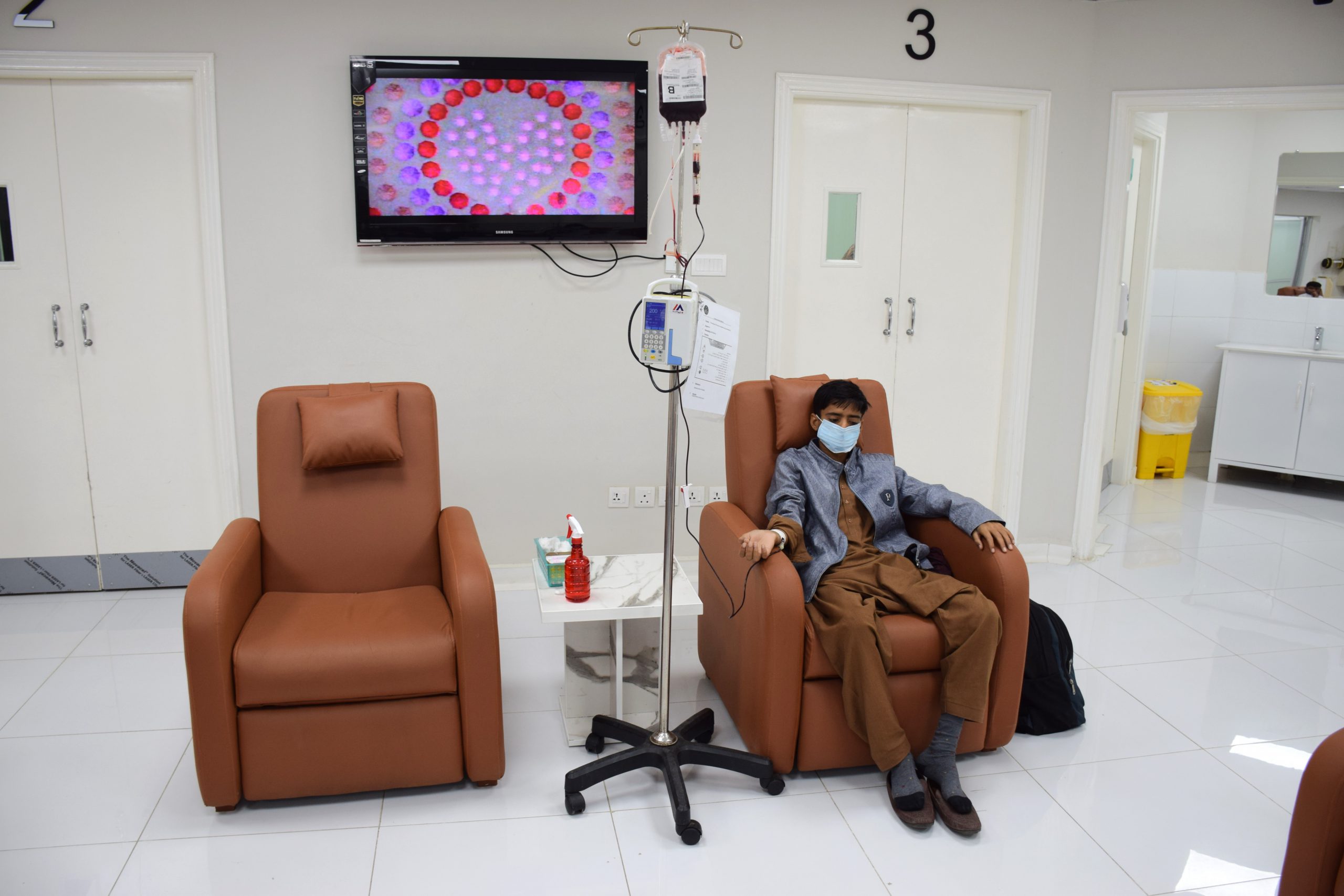
Coming to AFBMTC for a Chemotherapy Session
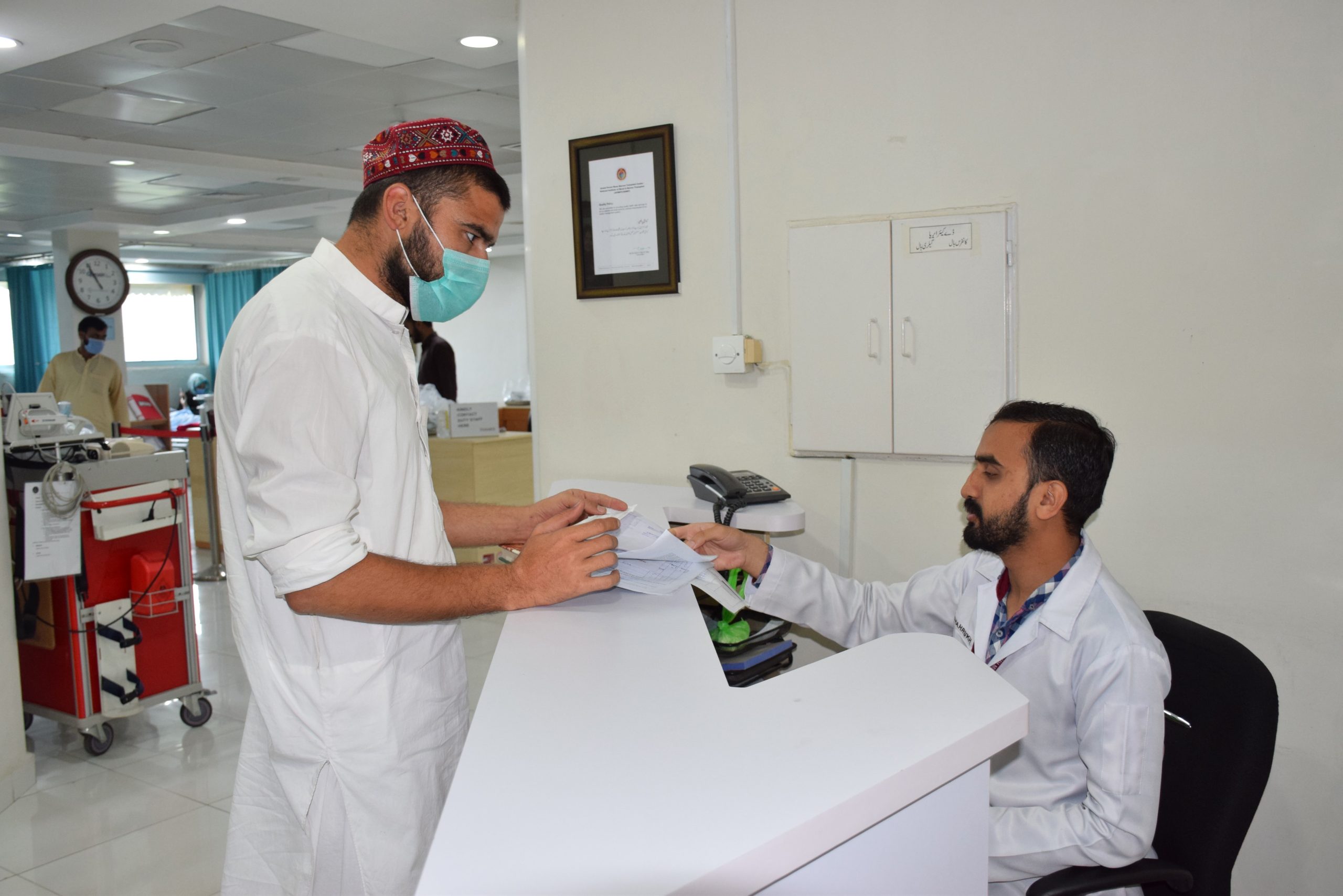
It is quite natural to be anxious after learning that you need chemotherapy sessions. However, being more aware of your disease and the process of chemotherapy administration can alleviate your worries and enable you to cope with the stress. Following details may help you to prepare for your chemotherapy session. Any further assistance can be provided by our team at Chemotherapy Bay. Pamphlets in this regard are also available at Chemotherapy Bay front desk.
- How to prepare myself for the chemotherapy session and what time should I reach ?
-
- Confirm your appointment at least a day before your planned chemotherapy session by calling at contact number provided from 0900 hrs to 1500 hrs.
- On your chemo-day, have a healthy light breakfast (unless you are told to stay empty stomach).
- Wear comfortable clothing, preferably a buttoned shirt with loose sleeves so that it is easy for us to place a catheter or access the existing one.
- You may also bring items that make your treatment time easier. For instance, consider bringing your phone, a tablet, books, or a blanket.
- Please make arrangements for your conveyance. Family and friends can provide valuable support.
- For your convenience, try reaching at least 15 mins before your allotted time slot.
- Make sure you are in possession for your chemotherapy protocol papers and relevant medical records, everytime you come for chemotherapy session.
- What should I expect during a chemotherapy session ?
- As per your allotted appointment and length of chemo session, you will be directed to a pre-designated space in our Chemotherapy Bay.
- Chemotherapy may be given orally as pills, in your veins (intravenous), in fat beneath skin (subcutaneus) or intrathecal depending upon your chemo protocol medications.
- A needle (catheter) will be passed into one of your accessible veins (unless there is an already existing catheter in place).
- Blood sample may be drawn to make sure your blood counts and other tests are in acceptable ranges for designated chemotherapy.
- An ECG might also be carried out.
- To prioritize patient safety and safe delivery of chemotherapy, your investigations e.g. blood tests, ECG or any other tests previously prescribed, will be thoroughly checked by the attending doctor at Chemotherapy Bay. These will also be counter checked by our competent team of pharmacists, before dispensing your chemotherapy drugs to Chemotherapy Bay.
- Depending upon your chemotherapy protocol, you might be given some premedication to correct any existing electrolyte imbalance and/or to decrease certain side effects of chemotherapy.
- While chemotherapy is being administered, your breathing, heart rate, pulse etc. may be monitored.
- You may eat, drink, read, watch TV or work on your tablet/ phone during the chemotherapy session.
- Chemotherapy duration may vary depending upon your protocol, from 1 – 2 hours to about 8 hours.
- What happens after IV Chemotherapy ends ?
- After your treatment session ends, the nurse or another health care team member will take out your IV cannula. If you have a port, it will stay in until you finish all of your treatments. The nurse may check your blood pressure, pulse, breathing, and temperature again.
- Chemotherapy Bay doctor or nurse may talk with you about what to expect with
side effects. They may give you medication, tell you how to manage common
side effects, and offer information such as:
- To avoid people with colds or other infections. Try avoiding crowded places. Wear a face mask. Chemotherapy weakens your body’s immune system. Your immune system helps fight infections.
- Drink lots of fluids for next 48 hours after chemotherapy. This helps move the drugs through your body.
- Before you leave your first treatment, be sure to ask who you should call with any questions or concerns and how to contact them, including after hours or weekends.
- Make sure that you have booked an appointment for your next chemotherapy session.
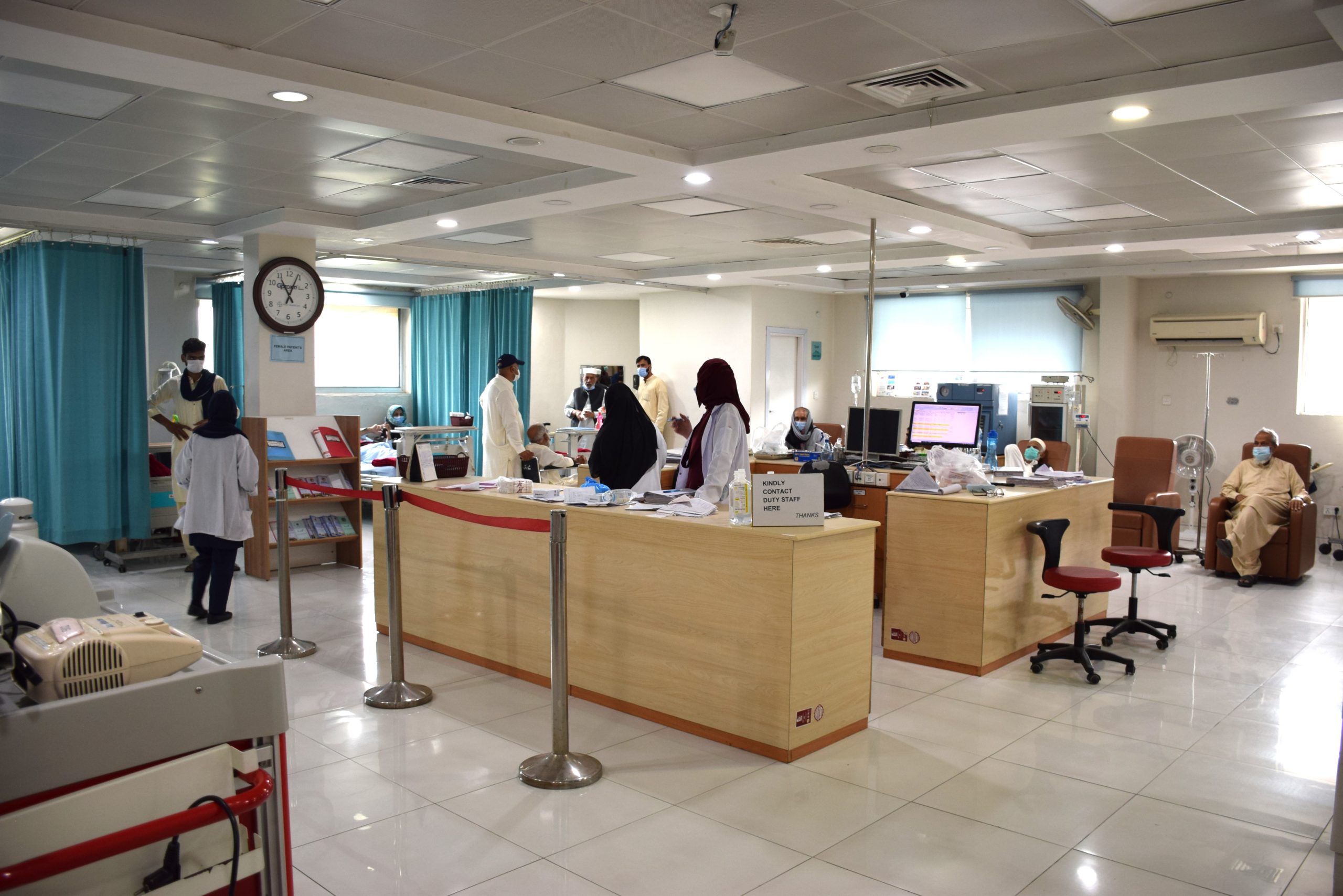
-
- What possible (FAQs and their answers) questions can I ask from the
attending doctor ?
- When do I next see my primary treating physician ?
- How long will my chemotherapy session last ?
- What diet should I take while undergoing chemotherapy ?
- Is chemotherapy session being done on weekends ?
- What follow up will I need after chemotherapy session ?
- What possible (FAQs and their answers) questions can I ask from the
attending doctor ?
Coming to AFBMTC for inpatient admission
Welcome To Bone Marrow Transplant & Chemotherapy WardThis information sheet explains about in patient wards, members of the team and facilities available for patients at Armed Forces Bone Marrow Transplant Centre. 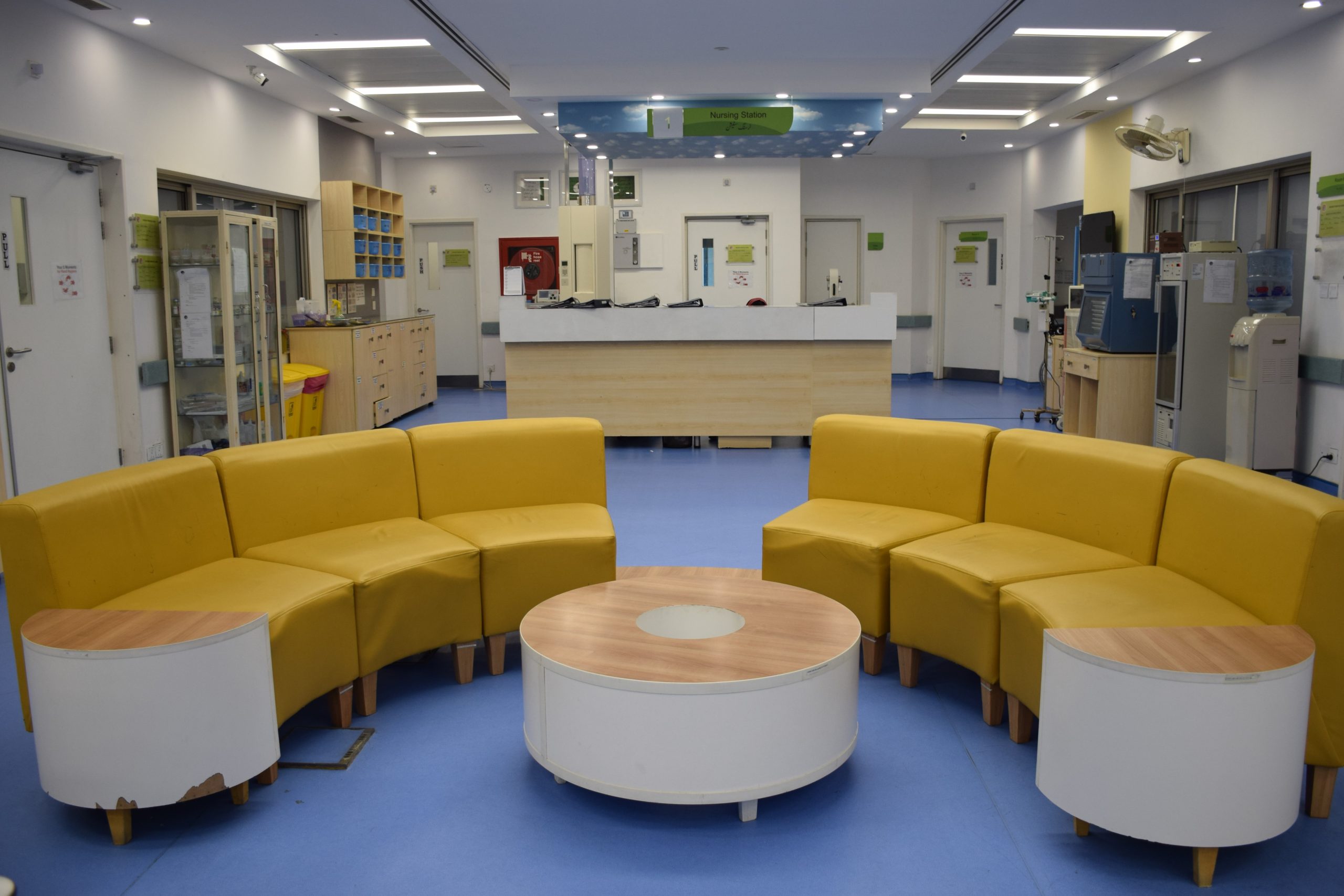
In patient wards are situated on ground, first and second floors of inpatient complex. Transplant I and Transplant II wards are on the second floor. There are nine cubicles in the transplant ward 1 and four cubicles in the transplant ward 2, each containing a patient bed and ensuite bathroom facilities. There are six auto-transplant rooms with ensuite bathroom facilities in High Dependency Unit (HDU) I & II. 
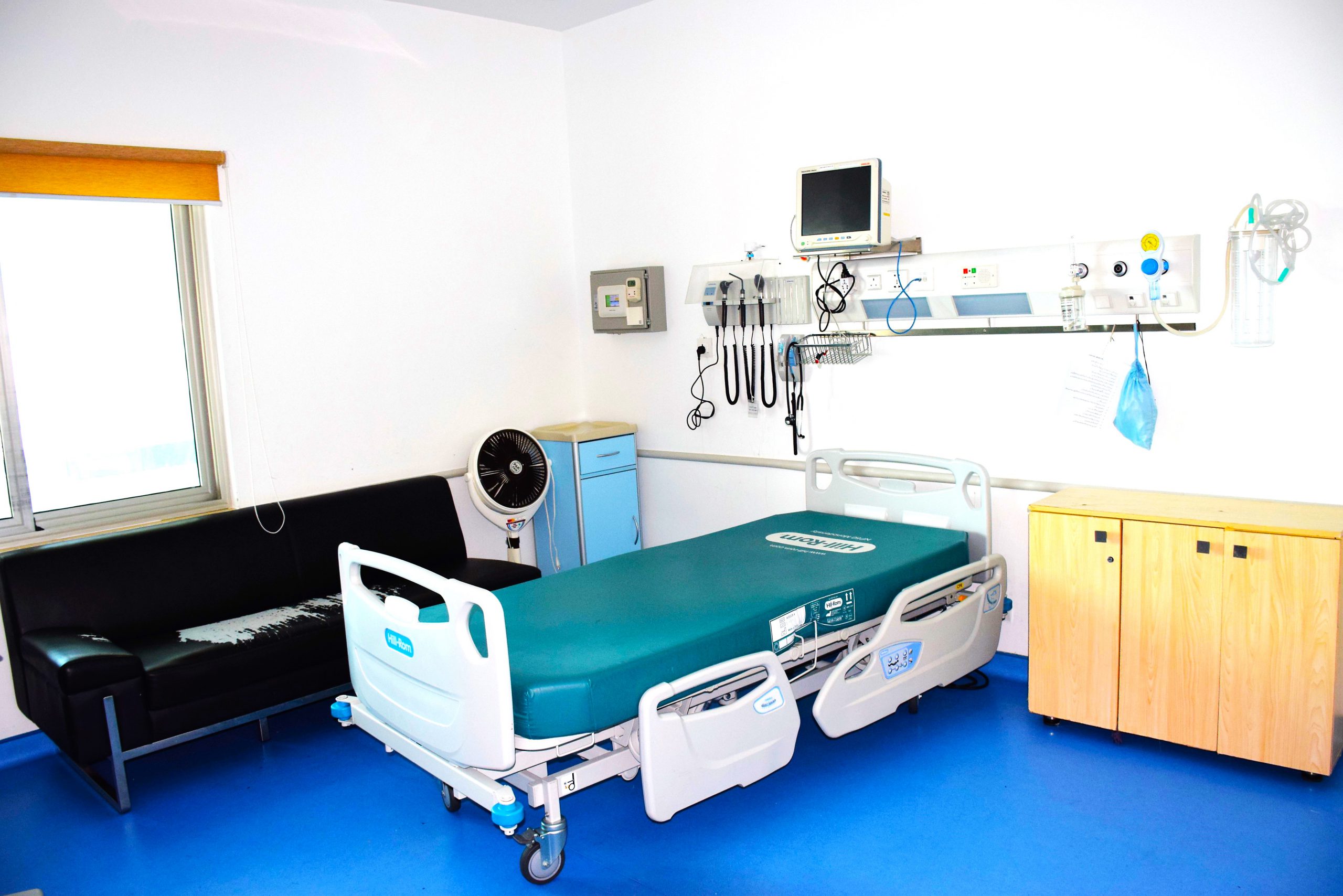
Our patients are highly susceptible to infection, so we have special air filtration systems. We also have very strict hand washing, isolation and visiting policies to help protect our patients further. |
Meet the team.
Specialists are doctors with expertise in bone marrow transplant, clinical hematology, medicine, and pediatrics. Resident is a fully licensed physician who is training to be a specialist. Nurse Manager oversees the unit’s daily operations. Nurses provide 24-hour care and assistance during your stay in the hospital. Nurses rotate their duties within the hospital but are all experienced in caring for patients with benign and malignant blood disorders. At any time, for any reason, if you have questions, needs or concerns, we encourage you to bring them to the attention of your nurse. She is there to help you and will do everything possible to make you comfortable. Nursing assistants assist nurses with your care and attends to your daily needs. Ward housekeepers assist in maintaining a safe and clean working environment for patients and staff, to support the nutritional needs of patients by supporting the ordering and delivery of supplies and meals. Pharmacist prepares and dispenses medication to patients, providing advice during the clinical rounds and process. He/she ensures that medications are appropriately stored and disposed off properly when they are no longer needed. TEAM PARTNERSHIP It is crucial that relationships between patients, clinicians, and health care organizations be grounded in trust, as trust impacts key health behaviors and outcomes. Together, we become members of the same healthcare team—a team completely focused on healing you and restoring your quality of life through respectful, compassionate, excellent care. |
Visiting Information
|
Hygiene and Infection Prevention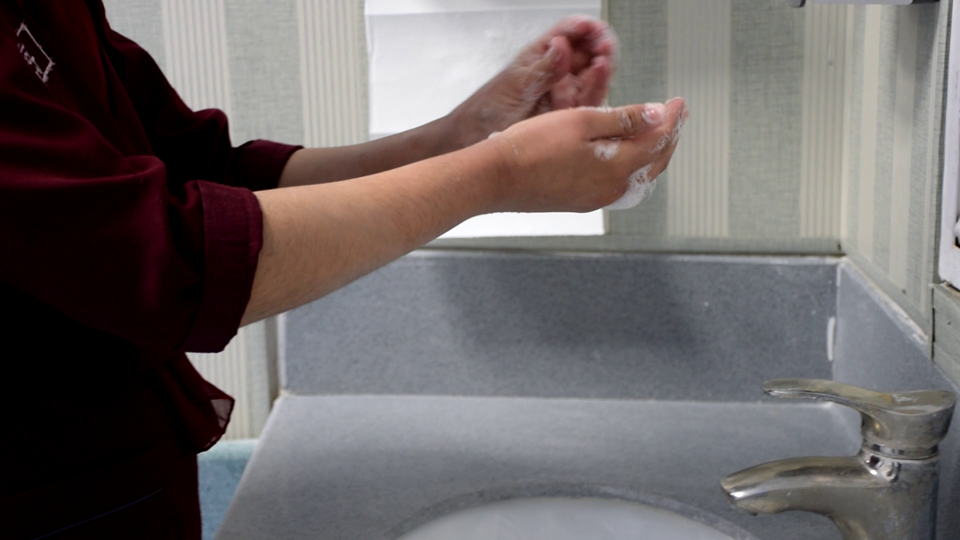
Prevention of infection is the backbone of management of cancer patients and those undergoing BMT. You are required to adhere to following advice:
|
Respect for staff and other families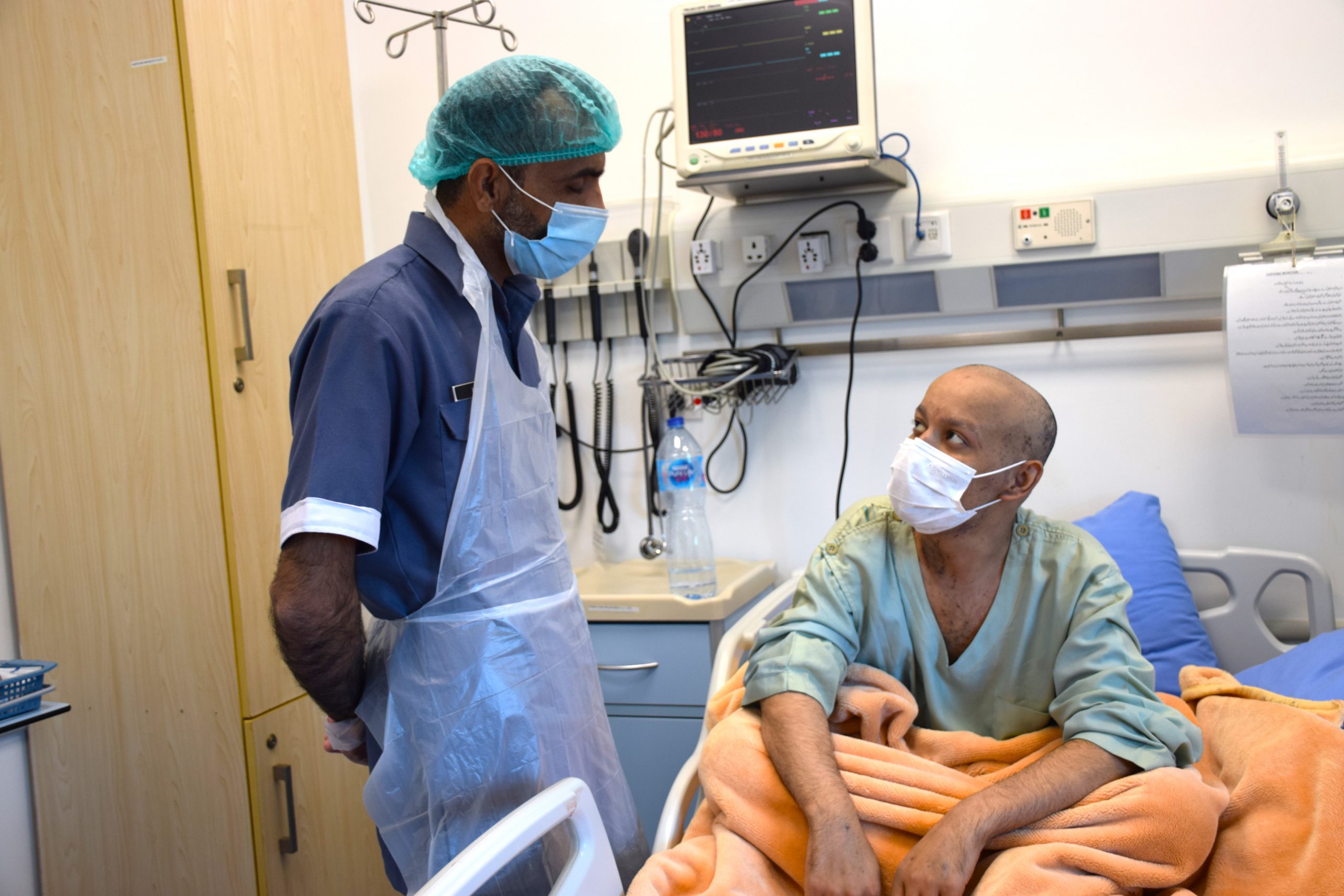
The hospital staff at AFBMTC is always welcoming and ready to take care of the patient and ease their sufferings. Therefore, it is equally important for the patient and attendants to give them full respect and honor. We know that there may be times when families are frustrated, angry or upset and we will discuss any concerns you may have about your care. You are requested to behave in cultured way with hospital staff. If there is any complaint regarding services or attitude of the staff, you can inform sister in charge or write in complaint register, available in the ward. We have a ‘zero tolerance’ approach to behavior that is inappropriate or threatening to patients, families and staff. We will not tolerate any type of threatening behavior, verbal, physical or psychological abuse and we have a policy to ensure this is dealt with appropriately. This may include, but not limited to discharge of the patient from the hospital. We also ask you to respect other families and keep noise to a minimum especially in shared areas. There may also be times when you are asked to leave the open areas when other patient’s care is being discussed. |
Security and safetyAll staff should be wearing identity badges, so if you are unsure who someone is please ask! There are few important things to remember during your time in Ward.
You are advised not to bring any valuables like jewellery, expensive mobile phones, cash/money more than essential requirements. In case of loss or theft of belongings not allowed, hospital administration will not be responsible. Following materials are not allowed in the hospital premises.
|
Our Amenities & ServicesFood & Meals Information AFBMTC has a special purpose-built kitchen to provide food to patients ensuring high standards of hygiene. The menu is carefully made keeping in view caloric requirements of the patients.
Internet and TV facility
Information Desk Hospital staff are available at the Information Desk in our main building to assist you and answer your queries. |
Requirements For Blood Products
Patients receiving chemotherapy and undergoing BMT require frequent blood transfusions.
|

OPD Block
To get an outpatient review, visit the OPD block.

1. Appointment confirmation
If you haven’t already booked an appointment then first take appointment from the appointment counter in OPD. For online appointment click here.

2. Patient Registration:
a. Register yourself at registration counter (bring identification documents too).
b. After registration you will be issued payment slip and token.

3. Blood test and vital signs recording
You can have blood test and vital sign monitoring at designated counter.

4. Doctor consultation
After getting blood test and vital sign monitoring done you will be requested to wait for your turn to be reviewed by your doctor. Your token will be announced at your turn.
5. Next Appointment
After your checkup by the doctor, you are requested to report to the appointment counter for next appointment
6. Facilities for OPD Patients
Cafeteria
We offer a cafeteria where visitors can get food and refreshments. It is
located on
ground
floor in the OPD building.
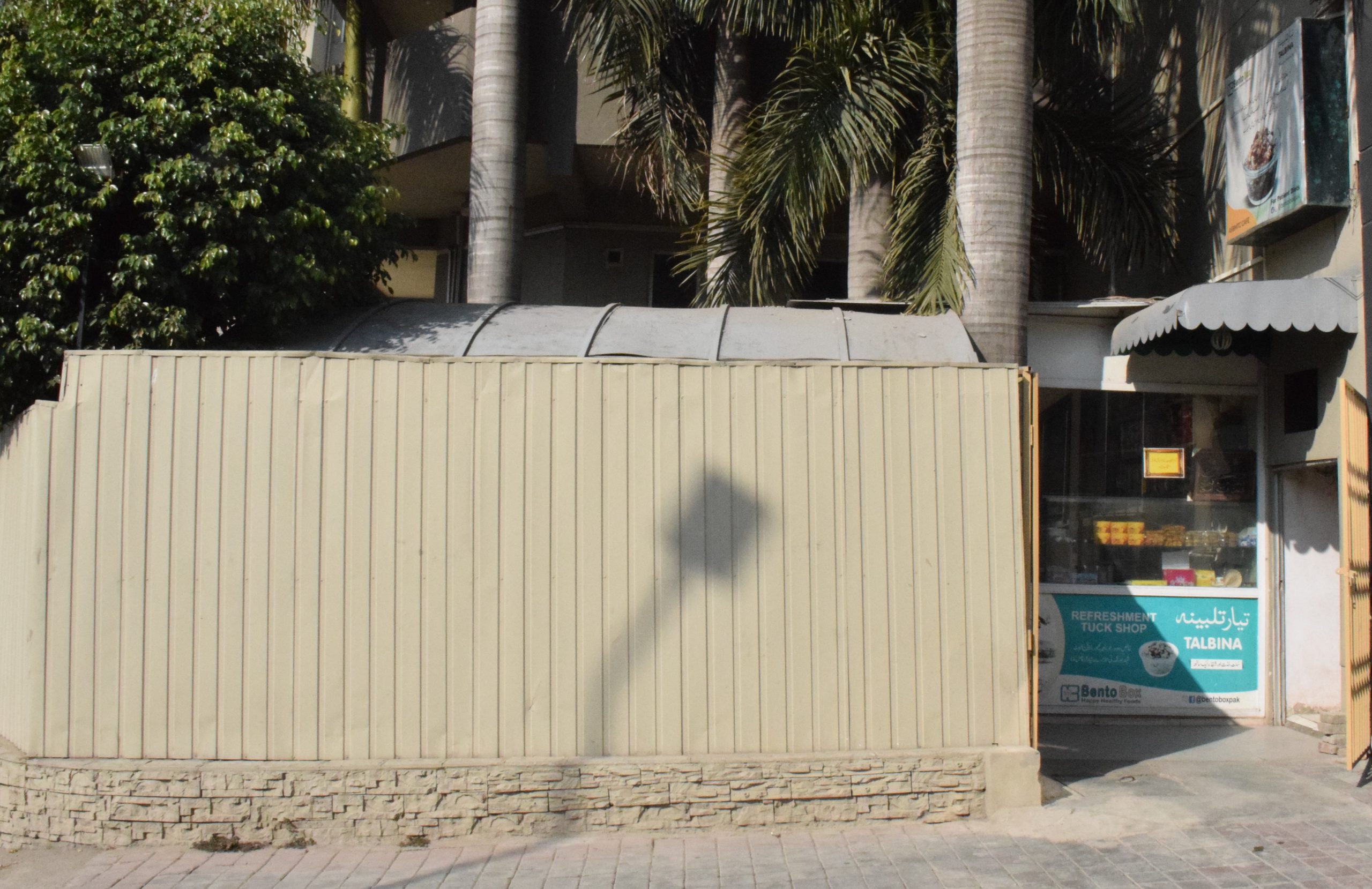

Pharmacy
Our pharmacy provides service from 0800 Hrs – 2200 Hrs. It is located on the ground floor in the OPD building.



Take a virtual tour of the hospital
- AFBMTC is carrying out around 150 transplants per year and provides indoor and outdoor facilities for benign and malignant hematology.
- Majority of the transplants are performed with HLA matched siblings/ family donors. However, in life threatening conditions Haplo(Half) matched BMT are also performed with very good results.
- At AFBMTC we offer BMT for the following conditions.
- Leukaemia
- Acute Lymphoblastic Leukemia (ALL)
- Acute Myeloid Leukemia (AML)
- Chronic Myeloid Leukemia (CML)
- Juvenile Myelomonocytic Leukaemia (JMML)
- Myelodysplasia syndrome (MDS)
- White blood Cells defects
- Leukocyte Adhesion Defect (LAD)
- Chronic Granulomatous Disease (CGD)
- Inherited neutropenia
- Red Blood Cell Disorders
- Beta thalassemia major
- Pure Red Cell Aplasia
- Platelet disorders
- Inherited platelet defects
- Bone Marrow Failure
- Inherited Bone marrow failure syndromes
- Acquired aplastic anaemia.
- Immune System Disorders
- Severe combined immunodeficiency (SCID)
- Agammaglobulinemia
- Hemophagocytic Lymphohistiocytosis (HLH)
- Inherited metabolic disorders.
- X-Linked Adrenoleukodystrophy
- Mucopolysaccharidoses (MPS)
- Gaucher disease
- Osteoporosis
- Autologous BMT for solid tumours
Following blood disorders requiring management other than BMT are also treated here.
-
- Acute and Chronic Leukaemia
- Nutritional Anaemia
- Autoimmune Haemolytic Anaemia (AIHA)
- Immune thrombocytopenia (ITP)
- Bleeding disorders (Haemophilia A)
- Coagulation disorders
Getting involved
Annual staff awards

Growing up, gaining independence
Content

Growing up, gaining independence: families
This is the content
Growing up, gaining independence: young people
This is the content
Real stories
Content
Maggie’s story
This is the content
Share your story
This is the content

Take a virtual tour of the hospital
Transition to adolescent/adult services
Content
Preparing for adult health services
This is the content
After your Arrival
Once you arrive at AFBMTC you will be recieved by our staff.
If your appointment is prebooked, please inform registration
counter. You will be given Registration Slip.
(appointment is mendatory to aviod long waiting times)
